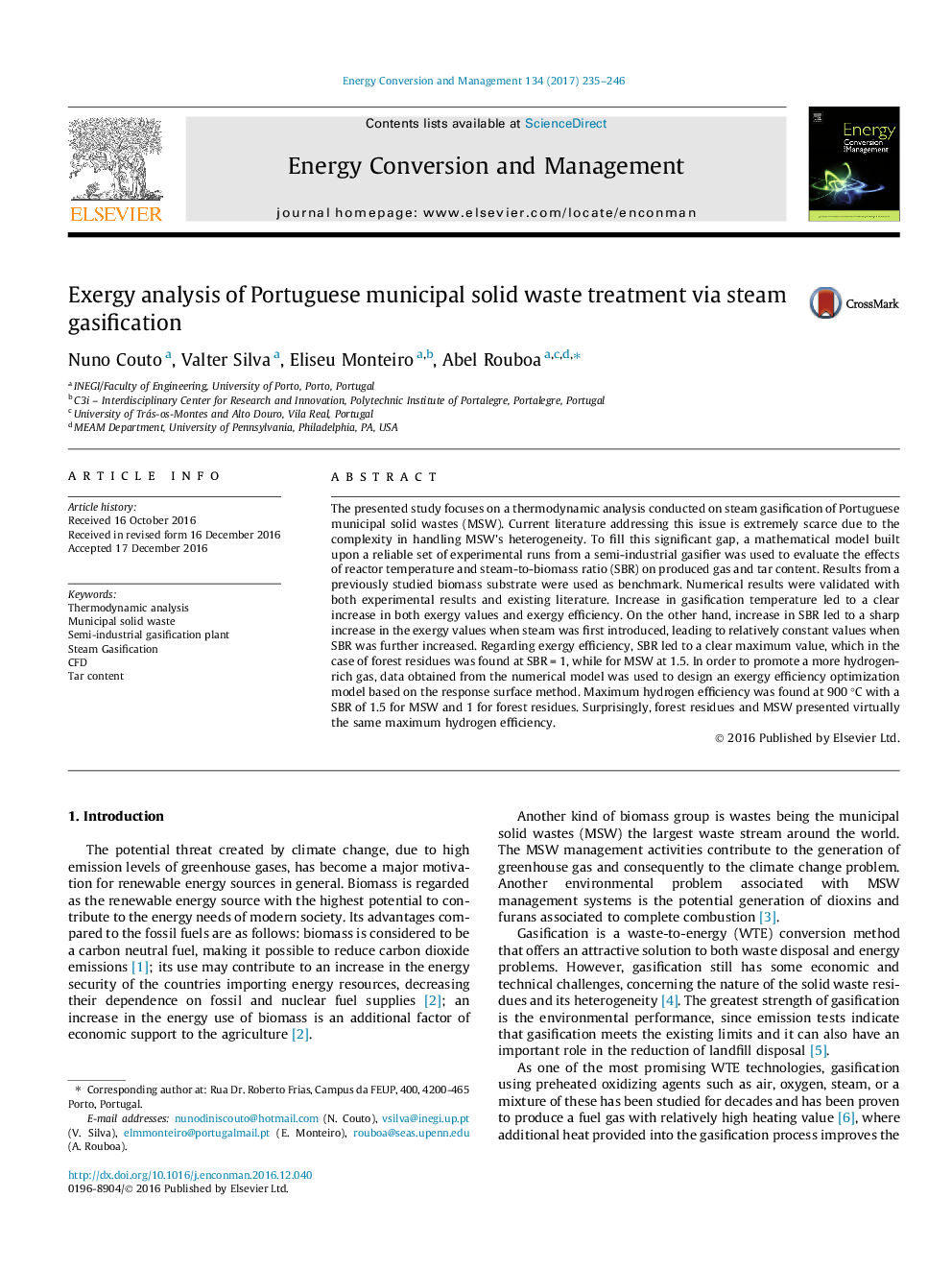| Article ID | Journal | Published Year | Pages | File Type |
|---|---|---|---|---|
| 5013067 | Energy Conversion and Management | 2017 | 12 Pages |
Abstract
The presented study focuses on a thermodynamic analysis conducted on steam gasification of Portuguese municipal solid wastes (MSW). Current literature addressing this issue is extremely scarce due to the complexity in handling MSW's heterogeneity. To fill this significant gap, a mathematical model built upon a reliable set of experimental runs from a semi-industrial gasifier was used to evaluate the effects of reactor temperature and steam-to-biomass ratio (SBR) on produced gas and tar content. Results from a previously studied biomass substrate were used as benchmark. Numerical results were validated with both experimental results and existing literature. Increase in gasification temperature led to a clear increase in both exergy values and exergy efficiency. On the other hand, increase in SBR led to a sharp increase in the exergy values when steam was first introduced, leading to relatively constant values when SBR was further increased. Regarding exergy efficiency, SBR led to a clear maximum value, which in the case of forest residues was found at SBR = 1, while for MSW at 1.5. In order to promote a more hydrogen-rich gas, data obtained from the numerical model was used to design an exergy efficiency optimization model based on the response surface method. Maximum hydrogen efficiency was found at 900 °C with a SBR of 1.5 for MSW and 1 for forest residues. Surprisingly, forest residues and MSW presented virtually the same maximum hydrogen efficiency.
Related Topics
Physical Sciences and Engineering
Energy
Energy (General)
Authors
Nuno Couto, Valter Silva, Eliseu Monteiro, Abel Rouboa,
